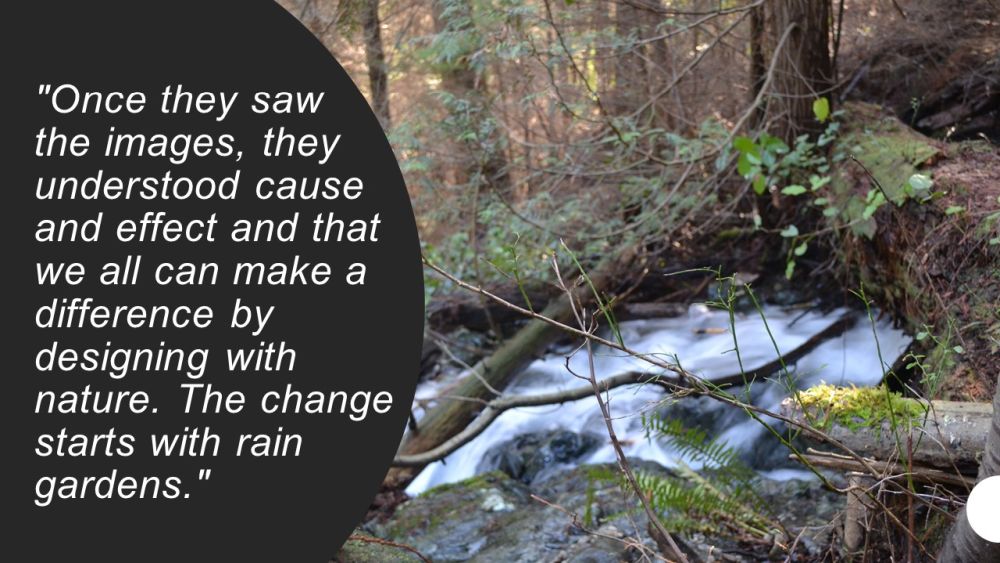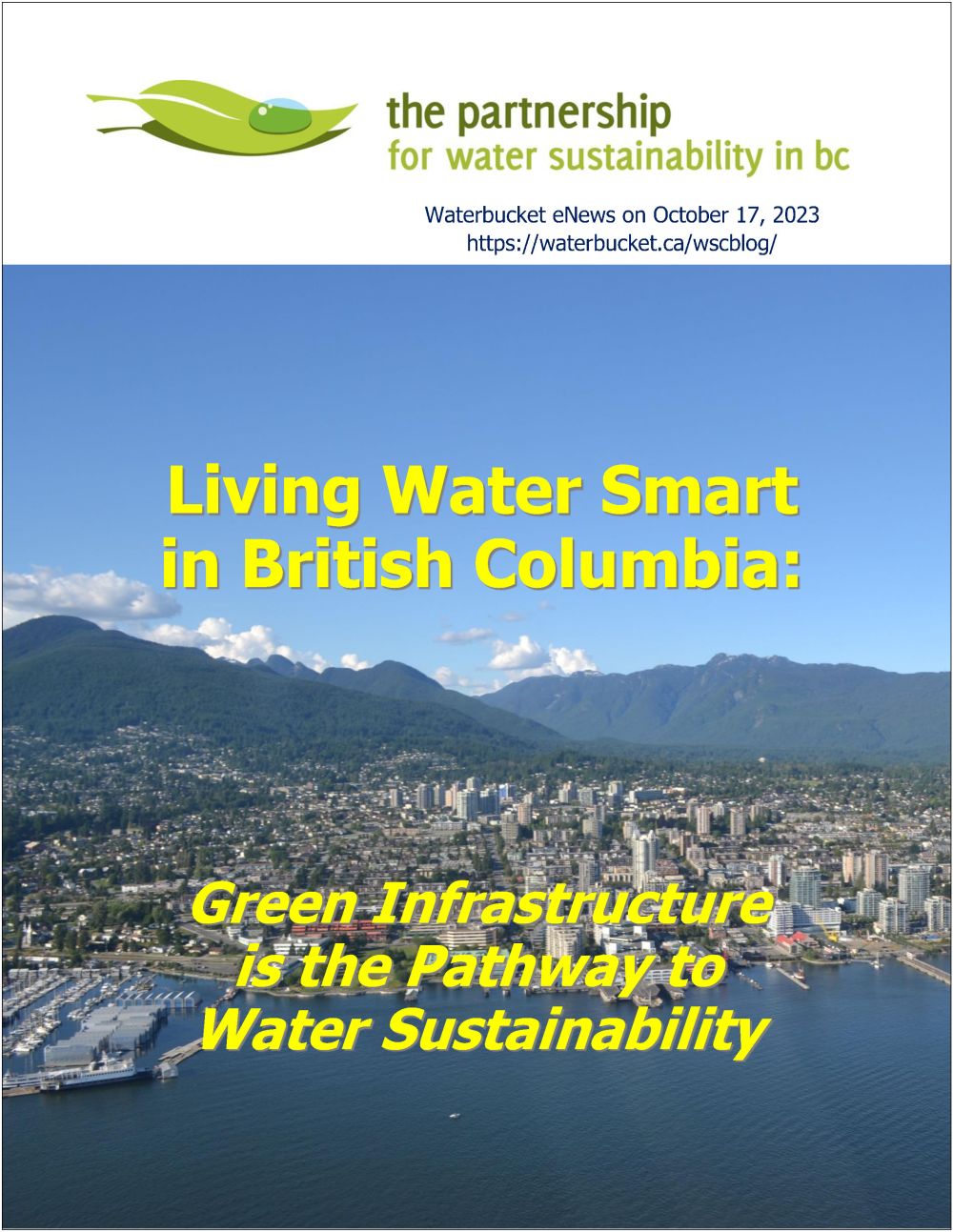LIVING WATER SMART IN BRITISH COLUMBIA: “The loss of understanding among elected representatives at the regional scale is real,” stated Darrell Mussatto, former mayor of North Vancouver City
Note to Reader:
Published by the Partnership for Water Sustainability in British Columbia, Waterbucket eNews celebrates the leadership of individuals and organizations who are guided by the Living Water Smart vision.
The edition published on October 17, 2023 featured an interview with Darrell Mussatto, former mayor of North Vancouver City. His time in office coincided with the timeline for the early adopter and leading by example phases of the Metro Vancouver region’s green infrastructure journey. He views the journey through both the regional and local lenses.

Green Infrastructure is the Pathway to Water Sustainability
“The past informs the future. To paraphrase what Sir Winton Churchill once famously said, it does help to look back if one wants to see ahead. For many months, this has been my context for conducting conversational interviews in the Metro Vancouver region,” stated Kim Stephens, Waterbucket eNews Editor and Partnership Executive Director.
“In talking to key players in government, both active and retired, I have been trying to understand why we were collectively successful in the 2000s, and what is different now. Looking back, we can clearly see that the 2000s truly was a transformational decade. It offered so much promise and hope.”
“With hindsight, it was fortuitous that after the 2005 local government elections, the Partnership established a mayors and chairs focus group. Thus, we have a written record of the thinking that guided the green infrastructure journey through the 2000s. This means we have a baseline!”

Understand your oral history and frame it to suit the times
“My conversations in 2023 have helped me understand the change in mindset between the “class of 2005” and “class of 2022″. It is a different crowd in 2023. When you look back in order to see ahead, you begin to appreciate the nature of their differences.”
“A lot of things that took place in the 2000s are the building blocks which people have forgotten. As Darrell Mussatto points out in the story behind the story, the loss of understanding is real. In the 2000s, politicians and staff were aligned. This fueled political commitment to take action to achieve a shared vision.”
“A common refrain is that what was possible in the 2000s would not be possible in the 2020s. Times are tough. Those who are in the front lines of local government are embattled, stretched to the limit, and under-appreciated.”
“To find a path forward in these challenging times, you have to understand your oral history and frame it accordingly! Where we have landed on is risk management.”
“We must inspire elected representatives to become champions and do the right thing,” says Darrell Mussatto in his call to action.”
Darrell Mussatto understands the connection between Storm Drains and Stream Health
“Years ago, I prepared a slideshow and met with community groups,” said Darrell Mussatto when he told me his story. “First, I would show photos of catch basins. Do you know where the road runoff goes after it enters the storm drain system? I would ask. Often, there would be a lot of blank looks.”
“Then I would show photos of Wagg Creek. This is where the water goes and look at the consequences. Erosion and channel bank instability. Light bulbs would go on. A common refrain would be: I had no idea, but now I get it’.“

TO LEARN MORE:
To read the complete story, download a copy of Living Water Smart in British Columbia: Green Infrastructure is the Pathway to Water Sustainability. The downloadable version includes a Bonus Feature – the complete interview with Darrell Mussatto!
DOWNLOAD A COPY: https://waterbucket.ca/wcp/wp-content/uploads/sites/6/2023/10/PWSBC_Living-Water-Smart_Darrell-Mussatto-on-green-infrastructure_2023.pdf


